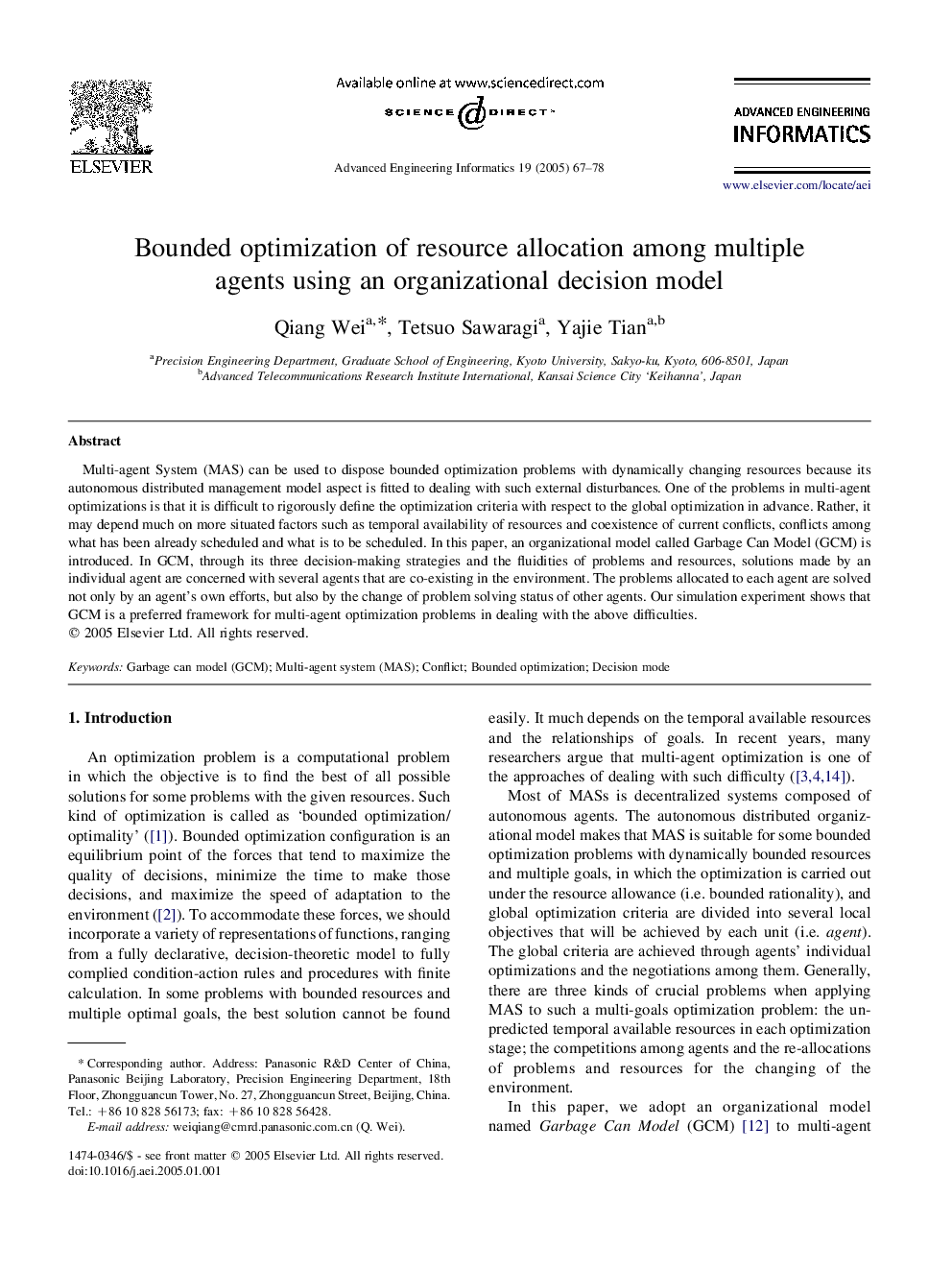| Article ID | Journal | Published Year | Pages | File Type |
|---|---|---|---|---|
| 10281795 | Advanced Engineering Informatics | 2005 | 12 Pages |
Abstract
Multi-agent System (MAS) can be used to dispose bounded optimization problems with dynamically changing resources because its autonomous distributed management model aspect is fitted to dealing with such external disturbances. One of the problems in multi-agent optimizations is that it is difficult to rigorously define the optimization criteria with respect to the global optimization in advance. Rather, it may depend much on more situated factors such as temporal availability of resources and coexistence of current conflicts, conflicts among what has been already scheduled and what is to be scheduled. In this paper, an organizational model called Garbage Can Model (GCM) is introduced. In GCM, through its three decision-making strategies and the fluidities of problems and resources, solutions made by an individual agent are concerned with several agents that are co-existing in the environment. The problems allocated to each agent are solved not only by an agent's own efforts, but also by the change of problem solving status of other agents. Our simulation experiment shows that GCM is a preferred framework for multi-agent optimization problems in dealing with the above difficulties.
Keywords
Related Topics
Physical Sciences and Engineering
Computer Science
Artificial Intelligence
Authors
Qiang Wei, Tetsuo Sawaragi, Yajie Tian,
